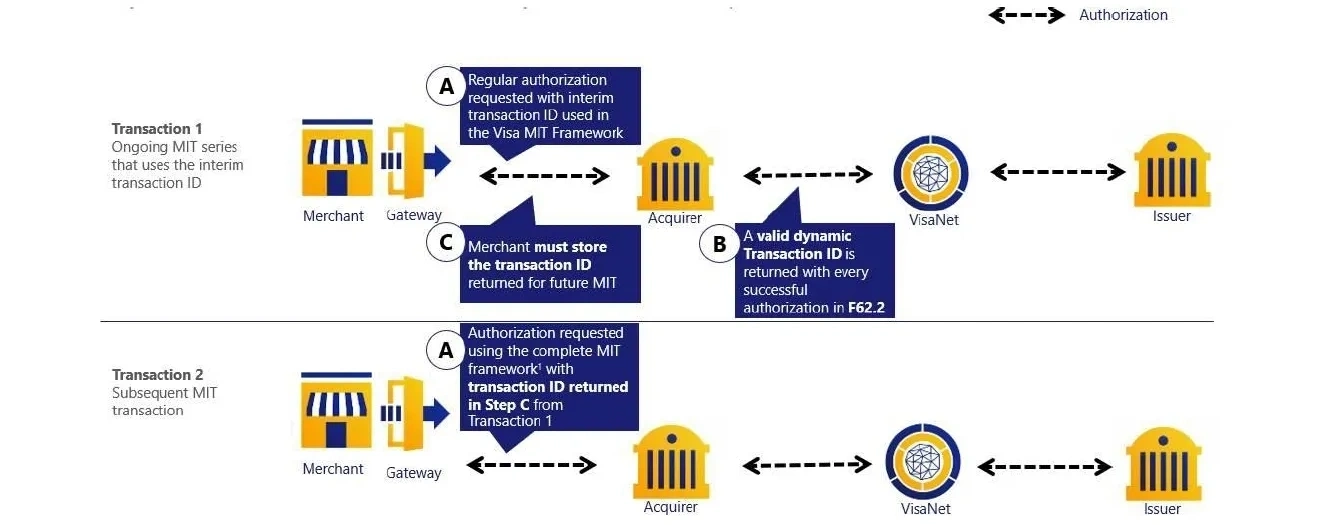Visa has announced the end of support for Interim Transaction Identifier issued in EEA and UK relative to Merchant Initiated Transactions (MITs).
As you may know, to successfully process a MIT transaction it must contain the Original Transaction Identifier (OTID) of the initial cardholder-initiated transaction or previous MIT. This requires that the OTID is stored and subsequently retrieved and populated in the appropriate field of MIT transactions. To comply with the requirements of the second Payment Services Directive (PSD2), Visa had provided European acquirers with an Interim Transaction Identifier (under a waiver) that could be used where OTID was not provided by the customer or gateway.
The Visa OTID waiver expired on 31 October 2022.
Visa has also announced non-compliance assessment (NCA) fees starting from August 2022. Therefore, we recommend migrating to a valid OTID as soon as possible in accordance with the Visa Rules to avoid non-compliance fees. The use of the Interim Transaction Identifier will be technically disabled in the Visa authorisation system effective 31 October 2023.
Businesses that currently use the Interim Transaction Identifier must start migrating to a valid transaction ID as soon as possible.
There are two options on how you can obtain a valid Original Transaction Identifier (OTID) to replace the Interim transaction ID:
- Request a Cardholder Initiated Transaction (CIT), effectively reauthenticate, and store OTID for future use.
Use Transaction ID of any previous MIT within the same merchant-cardholder agreement.
Below is guidance on how merchants can migrate from use of the Interim Transaction ID to a valid Transaction ID.



